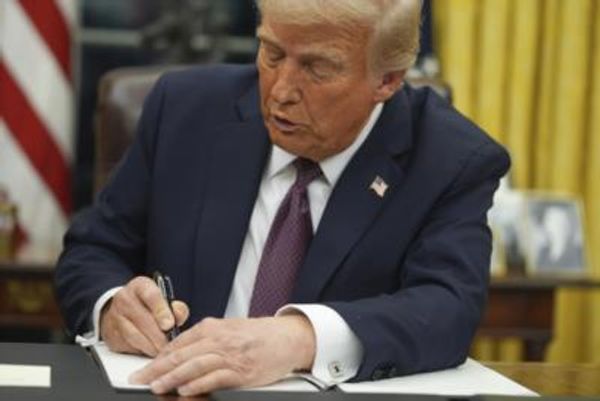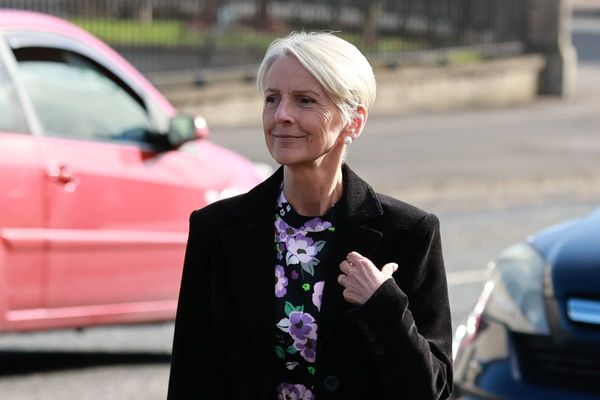
“Bad work for your lot in the Lords, hey!” says I, and Mr Disraeli lowered his lids at me in that smart affected way he had. “You know the Jewish Bill getting thrown out. Bellows to mend in Whitehall. Bad luck all round, what?” I went on. “What with Shylock running second at Epsom. I had twenty quid on him myself!“
I heard Loch mutter behind me “Good God”, but friend Disraeli just put his head back and looked at me.
“Indeed,” he said. “How remarkable. And you aspire to politics do you, Mr Flashman?“
“That’s my ticket!” I said.
Flash for Freedom, book two of The Flashman Papers, by George MacDonald Fraser
Golly gosh, I-I-I — phwoar! But for the last time? Boris, the blond bombshell, the Beano omnishambles — gone at last? Yes, it was last week, but your correspondent has been away and wants a piece of it. The man who once told his sister, aged 10, that he wanted to be “world king”, has cratered out. With his extended “caretaker” period taking his term into three years in office, he may pass James Callaghan, embattled Thatcher precursor (3 years, 1 month), and he has cleared Neville Chamberlain (2 years, 348 days) which must be a relief. He will also pass Theresa May (3 years, 11 days), which was pretty much the whole point of getting a caretaker period.
But for all this nonsense talk about him being “the most consequential [UK] prime minister of our era”, his tenure is an obvious failure and a joke. He’s down there with Anthony Eden and Gordon Brown, Campbell-Bannerman and a dozen or so forgotten others. He is permanently exiled from even the middle reaches, the Balfours and Camerons, and the higher reaches — Blair, Thatcher, Churchill, Attlee — are peaks in the far distance.
There remains something of a mystery as to how this failure occurred. One had assumed that, once in power, he would modulate from the clownish, chaotic persona he had developed to hide the nastiness of his Manchester liberal economic politics and become more of a One Nation Tory in the Harold Macmillan style, judiciously presiding over a post-Thatcher mixed economy and gaining the sustained loyalty of the “red wall” Labour-to-Tory seats.
With that formula in place, he could have had a decade in power, and made his clown’s makeup a mere prelude. In a decade it would have been as amazing to many that PM Johnson had once been a panellist on Have I Got News For You, as a young Winston Churchill leading street protests in 1899 (to opposing the banning of high-class streetwalkers from Leicester Square theatre bars).
That Johnson couldn’t manage it is no great mystery; that he made no effort to try is something of one. Like two other recent figures — Tony Abbott and Donald Trump — there was no sense that there was any prize beyond winning the election. Everything after was a burden and a bore. What the professional politician wants most of all — to be in power and stay in power, to simply govern in crisis and calm — appears to have held no attraction for these men whatsoever.
What the professional politician craves most of — more work, more decisions to make, in the UK parlance more “red boxes” — was anathema to these men. They were loyal to the imaginary aspects of the life, the perks of office, the triumphal appearances as the flashlights pop, but could make no emotional connection to the dull aspects of government, which is what professional politicians find most exciting.
It seems sufficient to call all three of them narcissists, and to ask what it is that makes them such. The “clinical narcissist” has become the villain of our time, just as the problem the term describes has become a more general one. In a world in which media, image and manufactured culture in a global setting have become overwhelming, narcissism — an excess of self-regard and self-obsession that makes impossible an integration with “the real” and “the social” — has become to our society what tuberculosis was to an earlier one. Given that narcissism is a disorder of the mirror, it’s inevitable that we fling the accusation at everyone else rather than identify it in ourselves. It lies at the base not only of many of the dilemmas we have as adults, but at the fractured and excessively miserable state of much adolescence, and the anxiety and identity dilemmas that arise from it.
The degree to which this has become a wearying and irritating feature of modern life has created another paradoxical feature: we look to certain figures to be clear of it, to represent a unity of purpose and self-regard, which would infuse us with something of the same. That simply makes many of us prey to the most delusional narcissists of all, those who have absolutely no self-awareness, or no desire for such, and whose appearance of confidence and competence is thus adamantine.
Yet no one can fail to notice that, in our time, these great political skywhales have all come from the right. It is not something that afflicts the centre-left we have now. If anything, they don’t have enough of it; these parties now have leaders who are more diffident than not. What one would do for a bit of flash on our side!
But not what the other side have had. Their affliction over the past decade has been that of leaders who suggest the glories of the recent past, after a time when these battles have been won, or fought to a draw. The “conservative narcissists” who emerged did so in imitation of the previous heroes — Thatcher, Reagan, Howard — whose personalities had been shaped in an earlier era. The first two of these in particular were fighting real battles: to overcome the powerful political-ethical system of democratic socialism that had arisen from World War II and dominated the post-war period.
Yet even here there was an asymmetry. Post-war social democracy had a powerful and consistent ethic, to modernise the world and give everyone the chance for a fully human life. The new right’s offer of such was to be achieved through the market, where social democracy had failed. But it would also require the state’s affirmation of traditional values beyond the market — character, integrity, the sacred — which would ground the culture, while market dynamism ran on.
Holding this contradictory double act together was possible only for the period when the memory of social democracy’s failures was fresh. That new right only ever subsisted as a counterfeit value system in the absence of a real one. Because the right has never understood how society works — that meanings, structures and personality forms change as technology and economy change — it was able to see neither the contradictory nature of the new right, nor the absolute farce of its successors. With the right (in both major parties) having pushed capitalism and atomisation into every area of social life, it has produced a world in which conservatism can only be expressed as a narcissistic performance, a fantasy that nobody really believes.
Thus, in The Australian, both Paul Kelly and Planet Janet Albrechtsen had a go at diagnosing the conditions of the fall of Johnson, the man whose collapse appears to have broken their hopes that some new order combining capitalist dynamism, pro-Western assertiveness, patriotism and anti-wokeness would arise.
But those who believe that such an ensemble could actually emerge from conservatism become totally lost when they see the actual result. Their belief that there’s an underlying base of reality and plain common sense that the mad modern world obscures, and which can be made visible again by a great leader, means they are uniquely incapable of seeing that it is only conservatism that could produce these people, and that, for a period, that was all they could produce. The failure to acknowledge the absolute demolition of continuity and tradition on which conservatism depends created a desperate and blinded desire to believe in these people long after their flim-flam nation was obvious.
If Thatcher and Reagan were copies of earlier figures fighting for a conservative order before the 1960s dawned, then Boris, Tony and Donald are copies of copies after it has all happened. They differed in many ways, but they had a common appeal to some notion of solid and unchanging values outside the present, outside themselves. We won’t see their likes again. Not in that specific constellation anyway. There was still, in the cultural-historical system, enough memory of a traditional culture to suggest that some sort of continent version of conservatism might be possible. They themselves have burst that bubble.
The relations have reversed. The anger and contempt felt for the likes of Johnson and Abbott are now substantial. Trump alone retains a total commitment at the core. We were over it all before anyone else, with Abbott’s brief turn being the farce preceding the tragedy of Trump and Johnson. Much as people try to assimilate Scott Morrison to the company, especially given his recent remarks on God and the state, it doesn’t work. Morrison was the first of the new generation of rightists, presiding over a fairly centrist politics, and sneaking in a bit of Christian proselytising on the side.
The current crop of political opportunists vying for the Tory leadership are uniquely uninspiring to both the party faithful and the northern Labour voters they hope to retain. Boris, Abbott and Trump were all on the horizon for years, as saviours of the movement, before they had their brief successes and momentous failures. Now no one is. When right-wing faithful look around, they see no one who could represent them in the way these men have.
So what happens next? The progressive parties are busy making themselves the sensible centrist parties who gain support by crushing people’s dreams, not enabling them — by being the party to tell you, honestly, how little can be changed and how little you can expect from modernity from now on. Anyone willing to challenge that in a way that can win power will have to remake their populism from elements of both left and right. They will have to be economically nationalist in a way that mainstream-right parties will not be able to manage.
But they’ll have to be politically and culturally nationalist in ways the left won’t go. It’s possible such will only emerge from a full and deep crisis, and anything less will simply generate a politics of “indefinite dissatisfaction”, in which the idea that politics might represent us, enact our demands and hopes, yields to an idea of politics as administration. As a third possibility, this very becalmed public space and edgy dissatisfaction will itself produce a new politics of action, a sort of reaction to the nothingness.
There’s no way of knowing. But one can safely say that indefinite dissatisfaction will be Boris’s lot for quite a while. He will rake in the millions as many have said, though it may not be quite as lucrative as many think. There needs to be a certain amount of respect and gravitas for the really big bucks. What he will have with him always is the sense of what he could have become had he possessed sufficient of the self-knowledge and self-direction a classical education is supposed to imbue.
In the end, he was a thoroughly modern man, a creature of the ’60s as much as any rock star who ever drove a Rolls-Royce into a swimming pool, someone who not only lived off his desires but could imagine no other way to live. He will hear the chorus mocking his hubris for the rest of his life. Phwoar.







